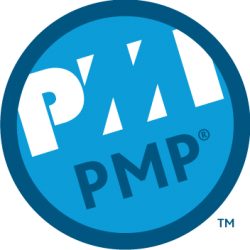Out of all the processes which are part of integration management I will discuss here only a subset of two:
- Develop project charter
- Develop project management plan
In March 2018 my wife and myself were invited to support a NGO which runs a school in the very rural parts of Maharashtra to take over the following mission:
- Value based education system to be implemented at school
- Work with management to improve the digital presence of the NGO
- Developing online donation collection system
- Setup a school management process
The planned schedule for us was to stay there for 6 months.
As per pm standards this input covers just the agreements and needs to be extended to a project charter.
Develop project charter
Developing the project charter is the first main task for a project manager. It establishes the baseline for all further work. When we arrived at the spot we interviewed our customers and the identified supporters for their expectations. We held brainstorming sessions, gathered as much as possible background information as we could and started to develop a more detailed scope statement. We were facing lots of challenges right from the beginning:
- very basic english knowledge of local stakeholders
- no experience of any structured approach at the school
- general knowledge gaps at the local side of the NGO
Some of these challenges could be identified as environmental factors, some where organisational assets. So we could identify even in this environment all the basic inputs which would be necessary for creation of a project charter.
To obtain the information for a project charter we used the observation and interview method. The first week we spent solely with gathering information from all the stakeholders. We were observing lessons, discussing with teachers, principal, students to figure out what are the expectations to us, what would be the intended change.
The result was shared as a structured word document which was used further on during scope management as well. During some feedback loops we refined the observation document and extended it with more information which would be needed for a proper project charter.
The final statement was written down as a short powerpoint, shared with the stakeholders and aligned for agreement.
Lessons learned for us: Even though the environment was challenging, very rural, quite unstructured – it was possible to use the normal pm tools to establish a valid project charter. It was efficient to take one week time to gather the necessary input before we started further activities.
Develop project management plan
Developing the project management plan consists of the combined activities of all knowledge areas referring to planning – so I will discuss it in the other sections.
Main decision to take was the type of the project. Should we plan “predictive”, “iterative” or “incremental”.
Based on the experiences we made at the beginning, we decided to choose the “iterative” approach for the following reasons:
- Achieve results early – avoid long planning cycle
- To reduce risks for planning – as only little knowledge about the environmental factors was available at the planning stage
- Motivate resources by achieving results
- Step by step involvement of resources to train them
Lessons learned for us: Unstructured environment does not support predictive project planning. Rolling wave or “iterative” fits best.

